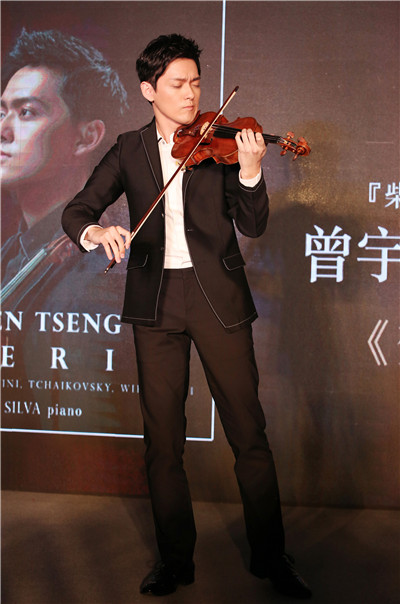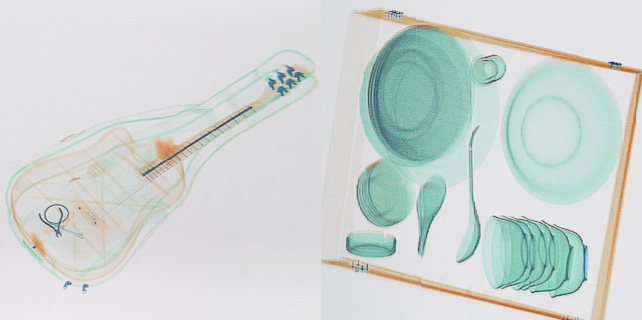Young violinist from Taipei releases new album in Beijing
 |
|
Tseng Yu-chien at his recent visit to Beijing to promote his new album, Reverie. [Photo provided to China Daily] |
When Tseng Yu-chien was 5 years old, his teacher called his parents to school because he sang Happy Birthday out of tune.
"She was worried about my hearing, so my parents, who were themselves teachers, enrolled me for violin lessons in the hope that through the process of learning the instrument, I could hear the intonations and imitate melodies," recalls Tseng, a musician who was born in Taipei.
After six months of learning, it turned out that Tseng not only had the perfect pitch but also could play the violin well. In a year, he was performing with the Taipei Symphony Orchestra.
In 2015, Tseng got his big break by winning the second prize at the International Tchaikovsky Competition, the highest prize in the violin contest since nobody won the first prize that year.
"One of the biggest challenges was physical strength," Tseng says about his experience of competing. "I didn't realize I was tired until the next morning after winning the award."
The 22-year-old violinist, who continues to pursue his master's degree at New York's Juilliard School, visited Beijing recently to release his new album, Reverie, for which he selected a variety of solo violin works and sonatas of famous composers that include Giuseppe Tartini's sonata in G minor, Chopin's nocturnes and Heinrich Wilhelm Ernst's Variations on the Last Rose of Summer.
Reverie was recorded by Tseng after he signed up with Universal Music in August. The album was released under the label Deutsche Grammophon.
"This album means a lot to me. It's a very personal collection of my favorite music," says Tseng, who gave the title of the album symbolizing "dreamy and beautiful music".
One of his favorite pieces in the repertoire is Mozart's Sonata K 454.
"When you play it with emphasis on the contrasts, emotion, energy and drama, the work has many shades of Beethoven, reflecting the violin's romantic spirit," he says.









